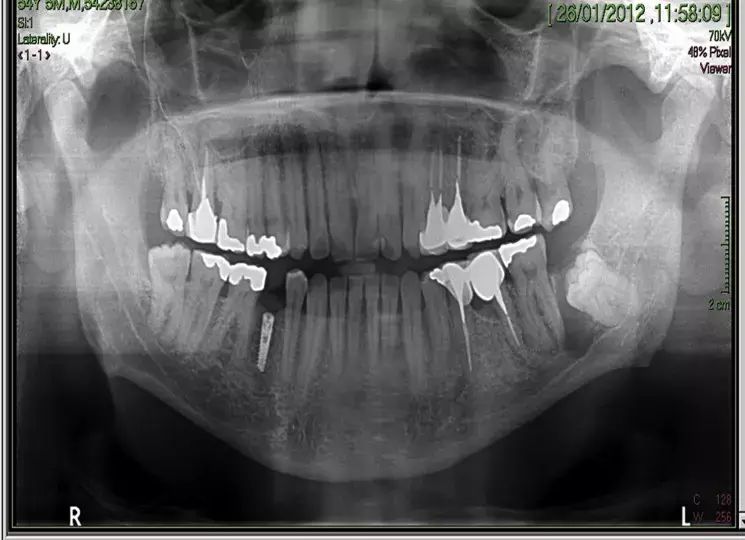- Home
- Medical news & Guidelines
- Anesthesiology
- Cardiology and CTVS
- Critical Care
- Dentistry
- Dermatology
- Diabetes and Endocrinology
- ENT
- Gastroenterology
- Medicine
- Nephrology
- Neurology
- Obstretics-Gynaecology
- Oncology
- Ophthalmology
- Orthopaedics
- Pediatrics-Neonatology
- Psychiatry
- Pulmonology
- Radiology
- Surgery
- Urology
- Laboratory Medicine
- Diet
- Nursing
- Paramedical
- Physiotherapy
- Health news
- Fact Check
- Bone Health Fact Check
- Brain Health Fact Check
- Cancer Related Fact Check
- Child Care Fact Check
- Dental and oral health fact check
- Diabetes and metabolic health fact check
- Diet and Nutrition Fact Check
- Eye and ENT Care Fact Check
- Fitness fact check
- Gut health fact check
- Heart health fact check
- Kidney health fact check
- Medical education fact check
- Men's health fact check
- Respiratory fact check
- Skin and hair care fact check
- Vaccine and Immunization fact check
- Women's health fact check
- AYUSH
- State News
- Andaman and Nicobar Islands
- Andhra Pradesh
- Arunachal Pradesh
- Assam
- Bihar
- Chandigarh
- Chattisgarh
- Dadra and Nagar Haveli
- Daman and Diu
- Delhi
- Goa
- Gujarat
- Haryana
- Himachal Pradesh
- Jammu & Kashmir
- Jharkhand
- Karnataka
- Kerala
- Ladakh
- Lakshadweep
- Madhya Pradesh
- Maharashtra
- Manipur
- Meghalaya
- Mizoram
- Nagaland
- Odisha
- Puducherry
- Punjab
- Rajasthan
- Sikkim
- Tamil Nadu
- Telangana
- Tripura
- Uttar Pradesh
- Uttrakhand
- West Bengal
- Medical Education
- Industry
Long term outcomes of mandibular coronectomy satisfactory when enamel is completely removed, suggests study

A study published in the Journal of Cranio-Maxillofacial Surgery suggests that the long-term outcomes of mandibular coronectomy are satisfactory and successful when enamel is completely removed.
This study aimed to analyze post-coronectomy complications, chronological root survival rate (success rate) using Kaplan–Meier analysis, and postoperative radiographic signs for root extraction. A total of 555 mandibular third molar coronectomies were clinically and radiologically evaluated (mean follow-up period, 27.2 months; range, 1 month to 10.5 years). Complications were observed in 22 (4.0%) cases.
Temporary inferior alveolar nerve damage was observed in one (0.2%) case, and 21 (3.8%) retained roots required extraction between 1 and 64 months after coronectomy due to dry socket (two cases, 0.4%), primary non-wound closure (10 cases, 1.8%), secondary root exposure (seven cases, 1.3%), and submucosal root eruption (two cases, 0.4%). Residual enamel after coronectomy was more significantly found on 13 (61.9%) of 21 extracted roots than on 30 (5.6%) of 534 surviving roots. Kaplan–Meier analysis revealed an overall survival rate of 93.8% at 5 years and 92.2% at 10 years. The 5-year survival rates differed significantly (p < 0.001) between the enamel-free (97.0%) and residual enamel-attached (58.3%) roots.
The Cox proportional hazards model showed a hazard ratio of 20.87 (95% confidence interval, 8.58–50.72). The long-term outcomes of coronectomy were satisfactory, and a higher success rate is expected when the enamel is completely removed during coronectomy.
Reference:
Kenichi Kurita, Hidemichi Yuasa, Shinichi Taniguchi, Motonobu Achiwa, Mitsuo Goto, Eri Kubota, Atsushi Nakayama, Atsushi Abe. Residual enamel removal to improve outcomes of mandibular third molar coronectomy: A single-center retrospective cohort study, Journal of Cranio-Maxillofacial Surgery. Volume 52, Issue 9, 2024, Pages 1042-1049, ISSN 1010-5182. https://doi.org/10.1016/j.jcms.2024.06.003.
Dr. Shravani Dali has completed her BDS from Pravara institute of medical sciences, loni. Following which she extensively worked in the healthcare sector for 2+ years. She has been actively involved in writing blogs in field of health and wellness. Currently she is pursuing her Masters of public health-health administration from Tata institute of social sciences. She can be contacted at editorial@medicaldialogues.in.
Dr Kamal Kant Kohli-MBBS, DTCD- a chest specialist with more than 30 years of practice and a flair for writing clinical articles, Dr Kamal Kant Kohli joined Medical Dialogues as a Chief Editor of Medical News. Besides writing articles, as an editor, he proofreads and verifies all the medical content published on Medical Dialogues including those coming from journals, studies,medical conferences,guidelines etc. Email: drkohli@medicaldialogues.in. Contact no. 011-43720751


